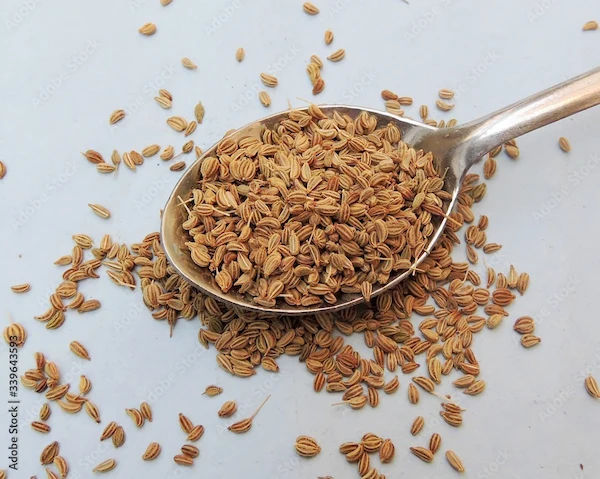Normal Vitamin B12 Levels Explained
Know why vitamin B12 levels are important, symptoms of low B12 levels, causes and how to maintain healthy vitamin B12 levels.

Written by Dr. Vasanthasree Nair
Reviewed by Dr. Dhankecha Mayank Dineshbhai MBBS
Last updated on 3rd Aug, 2025

Introduction
Vitamin B12 is an essential nutrient that plays a crucial role in keeping your body healthy. It helps in forming red blood cells, maintaining nerve function, and supporting DNA production. Since your body doesn’t produce Vitamin B12 naturally, you must get it from food or supplements.
Understanding what normal Vitamin B12 levels are and why they matter can help you stay healthy and avoid potential deficiencies. Let’s break it down in simple terms.
What Are Normal Vitamin B12 Levels?
Vitamin B12 levels are measured through a blood test. The normal range is usually:
200 to 900 picograms per millilitre (pg/mL) – This is the general healthy range.
Below 200 pg/mL – Indicates a possible deficiency, which may need treatment.
Above 900 pg/mL – Usually not harmful, but could be due to high supplement intake.
Your doctor may interpret results slightly differently based on your health, age, and lab standards.
Why Are Normal B12 Levels Important?
Vitamin B12 is vital for:
Healthy Nerves – Prevents nerve damage and supports brain function.
Red Blood Cell Production – Helps prevent anaemia (low red blood cells).
Energy Levels – Keeps fatigue and weakness at bay.
Heart Health – Helps regulate homocysteine levels, reducing heart disease risk.
Low or high B12 levels can cause health issues, so maintaining the right balance is key.
Symptoms of Low Vitamin B12
If your levels drop too low, you may experience:
Fatigue & Weakness – Feeling tired even after rest.
Numbness or Tingling – Especially in hands and feet (nerve damage sign).
Memory Problems – Difficulty concentrating or forgetfulness.
Pale or Yellowish Skin – A sign of anaemia.
Mood Changes – Depression or irritability.
Balance Issues – Difficulty walking steadily.
If you notice these symptoms, consult a doctor for a blood test.
Consult Top Specialists for Personalised Tips
What Causes Low Vitamin B12?
Common reasons include:
Poor Diet – Vegans/vegetarians may lack B12-rich foods (meat, eggs, dairy).
Digestive Issues – Conditions like celiac disease or Crohn’s affect absorption.
Pernicious anaemia is an autoimmune disorder that stops B12 absorption.
Medications – Some acid-reducing drugs (like PPIs) interfere with absorption.
Ageing – Older adults produce less stomach acid, making B12 absorption harder.
How to Maintain Healthy Vitamin B12 Levels?
1. Eat B12-Rich Foods
Include these in your diet:
Animal Sources: Meat, fish (salmon, tuna), eggs, dairy (milk, cheese).
Fortified Foods: Some cereals, plant-based milk, and nutritional yeast.
2. Consider Supplements
If you’re at risk (vegan, elderly, or have absorption issues), B12 supplements or injections may help.
3. Get Regular Check-ups
If you have symptoms or risk factors, a simple blood test can monitor your levels.
4. Treat Underlying Conditions
If digestive disorders or pernicious anaemia are causing low B12, proper treatment is essential.
When to See a Doctor?
See a doctor:
If you have symptoms of deficiency (fatigue, numbness, memory issues).
If you follow a strict vegan/vegetarian diet.
If you have digestive problems or take long-term acid-reducing medications.
A doctor can recommend a Vitamin B12 test and guide you on supplements or dietary changes.
Final Thoughts
Maintaining normal Vitamin B12 levels is crucial for energy, nerve health, and overall well-being. If you suspect a deficiency, don’t ignore the signs—early detection and treatment can prevent complications.
Consult Top Nutritionists
Consult Top Specialists for Personalised Tips
Ms. Lakshmi Tejasvi
Clinical Nutritionist
14 Years • M.Sc - Clinical Nutrition
Hyderabad
Vibgyor Nutri, Hyderabad
Dr Sumanth R
General Physician
2 Years • MBBS
Bengaluru
PRESTIGE SHANTHINIKETAN - SOCIETY CLINIC, Bengaluru
Mrs Sneha P V
Nutritionist
10 Years • Master of science in Food and Nutrition
Bengaluru
Apollo Clinic, Sarjapur Road, Bengaluru

Dr. Ramalinga Reddy
General Physician
5 Years • MBBS MD General medicine
Bengaluru
PRESTIGE SHANTHINIKETAN - SOCIETY CLINIC, Bengaluru

Dr. Bhukya Pavan Kalyan
General Physician
5 Years • MBBS DNB Paediatrics
Bengaluru
PRESTIGE SHANTHINIKETAN - SOCIETY CLINIC, Bengaluru
Consult Top Nutritionists
Ms. Lakshmi Tejasvi
Clinical Nutritionist
14 Years • M.Sc - Clinical Nutrition
Hyderabad
Vibgyor Nutri, Hyderabad
Dr Sumanth R
General Physician
2 Years • MBBS
Bengaluru
PRESTIGE SHANTHINIKETAN - SOCIETY CLINIC, Bengaluru
Mrs Sneha P V
Nutritionist
10 Years • Master of science in Food and Nutrition
Bengaluru
Apollo Clinic, Sarjapur Road, Bengaluru

Dr. Ramalinga Reddy
General Physician
5 Years • MBBS MD General medicine
Bengaluru
PRESTIGE SHANTHINIKETAN - SOCIETY CLINIC, Bengaluru

Dr. Bhukya Pavan Kalyan
General Physician
5 Years • MBBS DNB Paediatrics
Bengaluru
PRESTIGE SHANTHINIKETAN - SOCIETY CLINIC, Bengaluru




